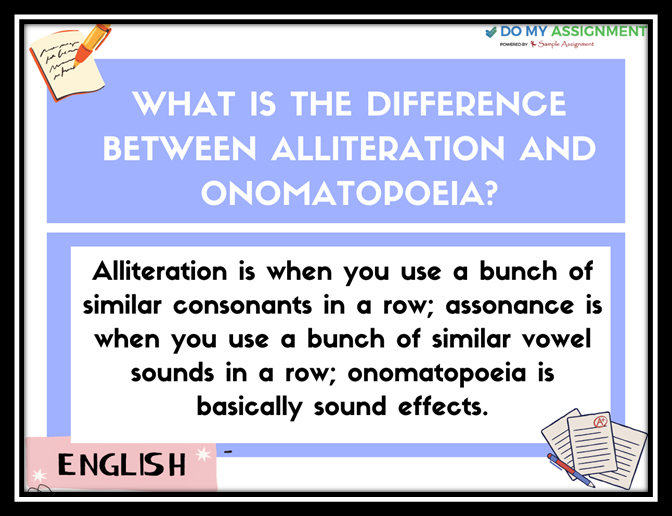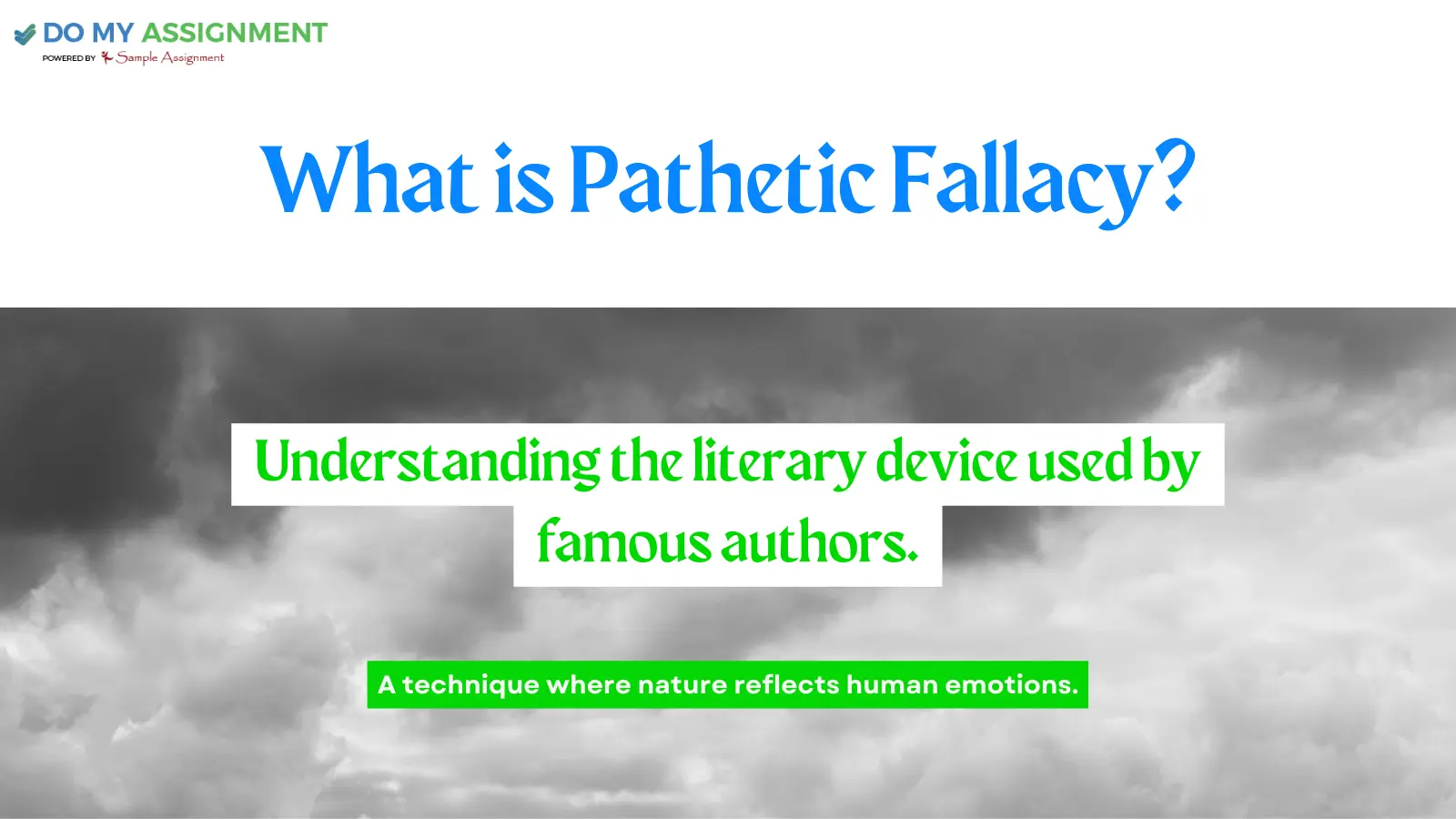What is Onomatopoeia?

Highlights
 What Is Onomatopoeia? – Meaning and Definition
What Is Onomatopoeia? – Meaning and Definition How to Recognize and Use Onomatopoeia?
How to Recognize and Use Onomatopoeia? How to Pronounce Onomatopoeia?
How to Pronounce Onomatopoeia? Types of Onomatopoeia:
Types of Onomatopoeia: Examples of Onomatopoeia:
Examples of Onomatopoeia: Why do we use onomatopoeia?
Why do we use onomatopoeia? Importance of Onomatopoeia in Writing
Importance of Onomatopoeia in Writing What Are the Challenges and Limitations of Onomatopoeia?
What Are the Challenges and Limitations of Onomatopoeia? Why Should You Consider Us for Language Assistance?
Why Should You Consider Us for Language Assistance?
Have you ever considered how amazing it would be to have a term for each sound you hear? Onomatopoeia makes it possible; thus, it is nothing to be amazed about. In this blog, you will discover about “what is Onomatopoeia”, the significance and the type of onomatopoeia.
Are you the one who is hearing this word for the first time? Are you confused about how to Pronounce Onomatopoeia? Then, no worries Write My Assignment is there to help you with this. They have highly skilled professionals who make it easy for you to understand this literary device.
What Is Onomatopoeia? – Meaning and Definition
Are you curious to learn the meaning of onomatopoeia? Then, even if saying and spelling certain terms may be difficult for you, defining them is not difficult at all. Understanding the onomatopoeia description can help you use it more effectively to give your work more dimension. Let's know in detail what Is Onomatopoeia?
Onomatopoeia is a figure of speech in which words are used to define the noises generated by all living things, including people, animals, birds, and inanimate objects. Onomatopoeia is defined by the Oxford Dictionary as "the use of words whose sounds are similar to the noises they define."
Are you aware that "onomatopoeia" is a mixture of the Greek terms "onoma" and "poiein"? "Onoma" means "name," while "poiein" means "to make." This term is commonly used in expressions like "Onomastics," which is the study of words and how they become part of the English language.
Additionally, this is not the first time then people may have tried to use sounds they heard to make words. Moreover, these words were first coined around the beginning of the sixteenth century.
How to Recognize and Use Onomatopoeia?
As listed above, these terms are often used to describe any sound that is produced by a living thing, a non-living item, or an entity. Sometimes, a word is created just from a sound. For example, "meow" is both the term for the sound of cats and the sound a cat makes. Just by knowing whether the term refers to a sound or not, you may quickly identify this phrase.
How to Pronounce Onomatopoeia?
Onomatopoeia is typically pronounced as "on-uh-mat-uh-PEE-uh." It's a five-syllable word with the emphasis on the third syllable, "mat."
Types of Onomatopoeia:
As you are already aware, this term denotes. It is time to have in-depth knowledge regarding the various types of Onomatopoeia. So, let's have a quick overview of various types.
Verbal Onomatopoeia
These type generally emulates sounds made by humans or animals, for instance, "buzz," "moo," "bark," or "meow." These words represent the sound of the natural world.
Machinery Onomatopoeia
These words replicate the sounds of machines or mechanical actions, like "click," "whirr," "clang," or "beep." They help describe the mechanical aspects of our world.
Environmental Onomatopoeia:
These types are basically used to describe the sounds that occur naturally. for instance, "drip," "crash," "rustle," or "splash." The sounds that we hear in nature are brought back to life through this.
Sensory Onomatopoeia:
Furthermore, this type generally describes the sound that conveys sensory experience. This includes sizzle," "hiss," "glitter," or "tingle." They display sensations and emotions using sound.
Examples of Onomatopoeia:
Now, let's explore more examples of onomatopoeia across various categories:
Verbal Onomatopoeia (Animal Sounds):
- The bees in the garden produced a constant buzz, creating a peaceful ambiance.
- As the sun set, the cows in the distance let out a soothing moo.
- The neighbor's dog startled me with its sudden bark.
Machinery Onomatopoeia:
- The old clock in the hallway emitted a gentle tick-tock.
- The engine of the vintage car emitted a deep vroom as it roared to life.
Environmental Onomatopoeia:
- Raindrops began to drip from the eaves, creating a rhythmic melody.
- The sudden crash of thunder sent shivers down my spine.
Sensory Onomatopoeia:
- The bacon in the pan emitted a delightful sizzle, making my mouth water.
- The snake's hiss sent a chill down my spine as it slithered closer.
These examples illustrate how onomatopoeia brings sound and sensory experiences to life in language and literature, making communication more engaging and immersive. Whether in everyday conversations, children's stories, poetry, or visual media, onomatopoeia enriches our ability to describe and understand the world around us.
Why do we use onomatopoeia?
By now, we’ve got a useful onomatopoeia definition and examples to help us. But aside from representing sounds in writing, why else might we use onomatopoeia?
In both speech and literature, onomatopoeic words are employed in various contexts. Onomatopoeic terms can be employed as verbs (such as "giggle," "growl," "chatter," "mumble," "slap," and "clap") even though they are typically used as nouns, adjectives, and adverbs (such as "crash," "bang," and "wallop").
Many of the onomatopoeic verbs, which describe vocal sounds, follow a pattern you can see. These are frequently used in literature to define particular linguistic forms. For instance, "mumbled" conjures up a more precise mental picture of someone speaking sheepishly and slowly. Instead of just noting that someone "spoke quietly," it has a stronger impact because of this.
Comics frequently make use of onomatopoeia. The action is brought to life with the use of words like "bang," "crash," and "pop." On other occasions, they may even be the only words used on the page. The power of onomatopoeic words is enormous!
Importance of Onomatopoeia in Writing
In writing, onomatopoeic words have many distinct purposes. These consist of:
Similar to real-life
Used by the author to open up the world of their tale or poetry by using words to express the noises of daily life.
Using Language Playfully
Whether the writer employs already existing words or invents new onomatopoeia words, this approach offers fun with language that all authors should embrace. Onomatopoeia words may be quite experimental.
Enticing the reader
Readers generally adore onomatopoeic terms. The reader finds these words amusing, intriguing, and fascinating, and they contribute to the passage's overall tone.
Composing comics.
Onomatopoeia words, both real and invented, are frequently used by comic book and graphic novel authors to represent sound effects and keep the plot intriguing.
Style
This literary method is a simple approach to give your writing style dimensions and variation.
Create mental images
An onomatopoeia aids in creating a mental picture of the writing's sights and sounds, even if it is not imagery in and of itself. The author's arsenal must include imagery and "show, don't tell writing” Techniques.

What Are the Challenges and Limitations of Onomatopoeia?
As we are all aware, everything reflects some positive and negative aspects. The same goes with Onomatopoeia, using this figure of speech also has some challenges and limitations. Now, let's learn about this in detail.
Cultural Translation and Interpretation Issues
Onomatopoeia is beautiful, but it also comes with difficulties that limit its usefulness. Have you ever attempted to describe the sound of the ocean waves? It could be challenging to put into words the noises that keep resonating if you have recently visited the beach.
Similar to amateurs, comic writers frequently fail to translate certain actions and noises into images. In actuality, the difficulty lies in the technical detail that makes some stories challenging to convey. As a result, to simplify the story and make it easier to explain, authors frequently have to alter the context.
Overuse And Stereotyping
Onomatopoeia is not without its difficulties, but it also has some restrictions. The result is frequently one-word statements or overuse of certain words. The reader gets yanked from the narrative by this disruption of the writing's flow. When repetition occurs at this point, clichés can result.
Word selection is a further issue with onomatopoeia. Your book's tone, target readership, and genre should all be considered when choosing the terminology you use to describe sound. The diction needs to be more approachable and simpler to read, for instance, for younger readers who lack a specialized vocabulary.
Although onomatopoeia does appeal to the reader's auditory senses, other literary devices like metaphors can help convey deeper meanings. You can explore more about metaphors and how they convey meaning in our detailed blog.
Why Should You Consider Us for Language Assistance?
Onomatopoeia is a linguistic device that enriches language and literature by mimicking the sounds of the world around us. It's a powerful tool for creating sensory experiences, adding depth to descriptions, and engaging readers and listeners in a more immersive way.
Students find it difficult to understand this topic because it may create confusion in their minds. To get rid of this, they seek several online platforms that may offer assistance with this. Stop Searching, buddy; we at Do My Assignment are just entangled to offer the best assistance with the help of our highly skilled professionals so that you can clear all your doubts and concerns reading this topic.
Do you feel stressed when you are asked to write assignments related to this topic? Do you get discouraged as you do not have proper knowledge and lack of time management issues? Relax, we are here to aid you with all this tension and worries. Our experts also offer online assignment help related to all other subjects. Whether you are struggling to draft assignments related to English, management, or any subject, we are here to aid you.
Nick Johnson
Nick is a multi-faceted individual with diverse interests. I love teaching young students through coaching or writing who always gathered praise for a sharp calculative mind. I own a positive outlook towards life and also give motivational speeches for young kids and college students.









